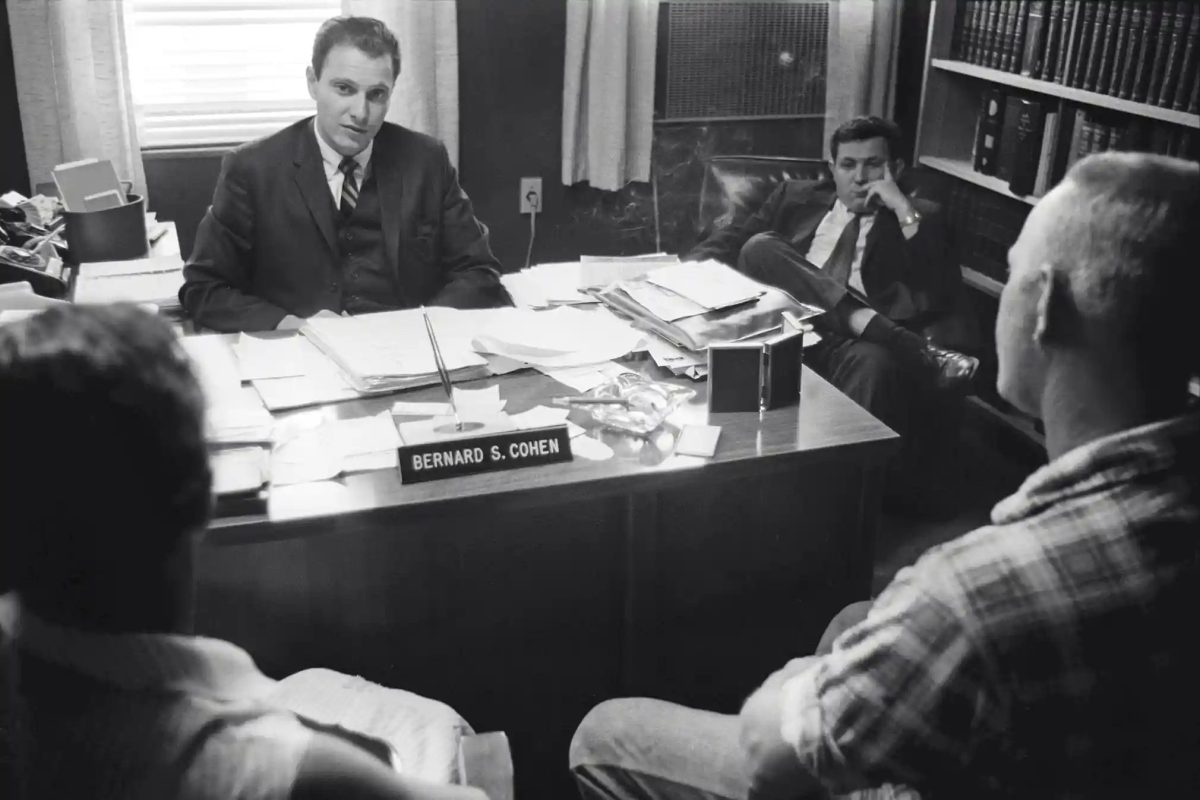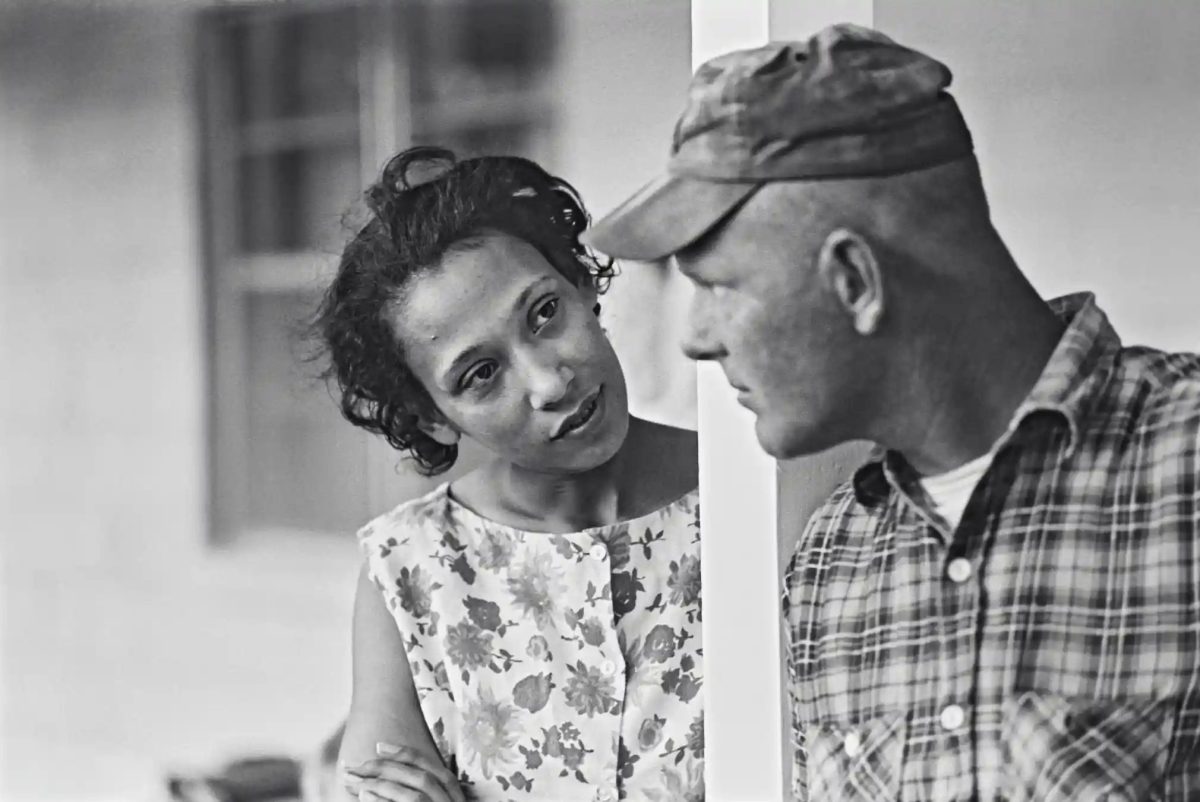
On July 11, 1958, Richard and Mildred Loving were pulled from their bed and arrested. The newlyweds were accused of “miscegenation”, a crime under Virginia law and each sentenced to a year in prison, with the sentence suspended on condition that the couple leave Virginia and not return together for at least 25 years. They could only return to visit family if they travelled separately and were not in the Commonwealth at the same time.
After their conviction, the couple moved to the District of Columbia. All the while they wanted to return home to their family and friends in Caroline County.
Their crime was about race and bigotry. Mildred (July 22, 1939 – May 2, 2008) was of African American and Native American ancestry, Richard (October 29, 1933 – June 29, 1975) was white. Interracial marriage was forbidden in Virginia and 26 other states on pain of law.
The couple fought back. Eventually, their case reached the US Supreme Court in Washington DC. On June 12, 1967, the court ruled unanimously in their favour.
Loving v. Virginia, 388 U.S. 1 (1967), was a landmark civil rights decision of the U.S. Supreme Court in which the Court ruled that laws banning interracial marriage violate the Equal Protection and Due Process Clauses of the Fourteenth Amendment to the U.S. Constitution
Two years earlier, in the spring of 1965, Grey Villet (1927–2000), a photojournalist for Life magazine, was sent to document the Lovings’ story. Here are some of his images of the heroic lovers from the book The Lovings: An Intimate Portrait.
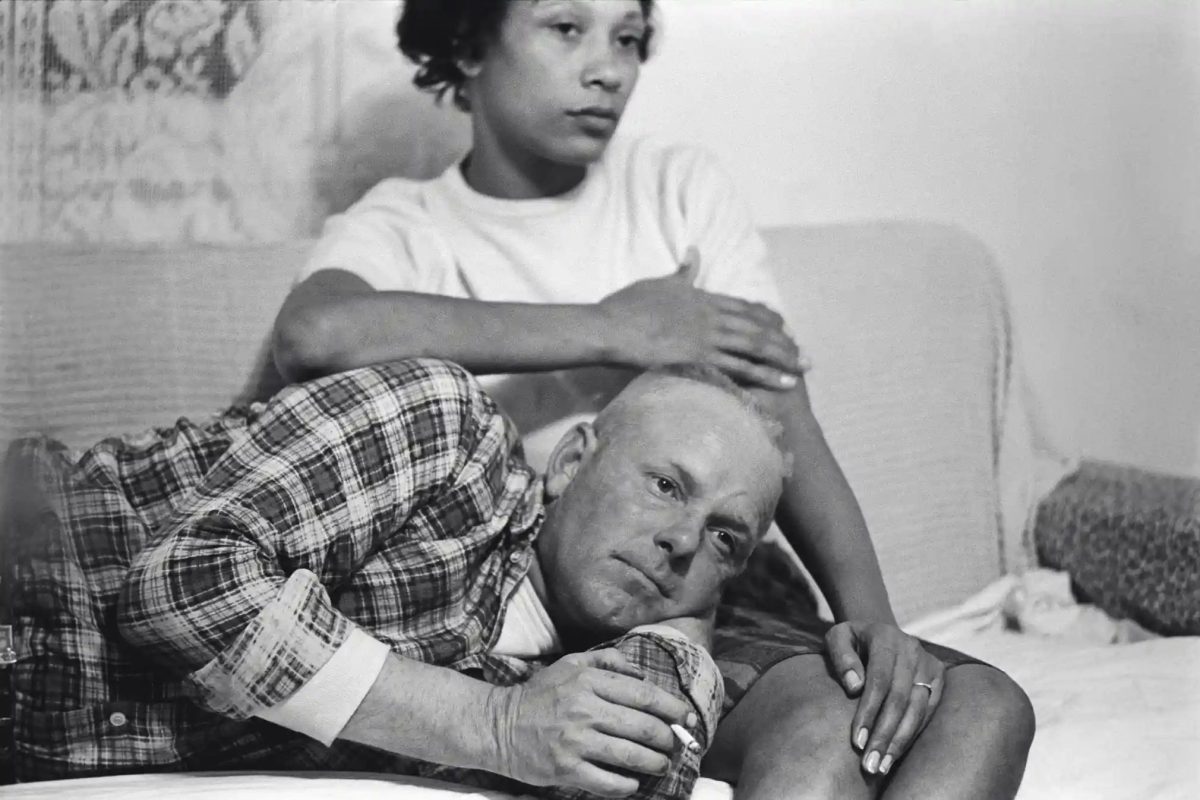
In June 1958, the couple went to Washington DC to marry, hoping to evade Virginia’s Racial Integrity Act of 1924, which made marriage between whites and non-whites a crime. Someone grassed them to the police , who raided their home a month later. They told the couple that their marriage certificate was invalid. In 1959, the Lovings pleaded guilty to the crime of “cohabiting as man and wife, against the peace and dignity of the Commonwealth.”
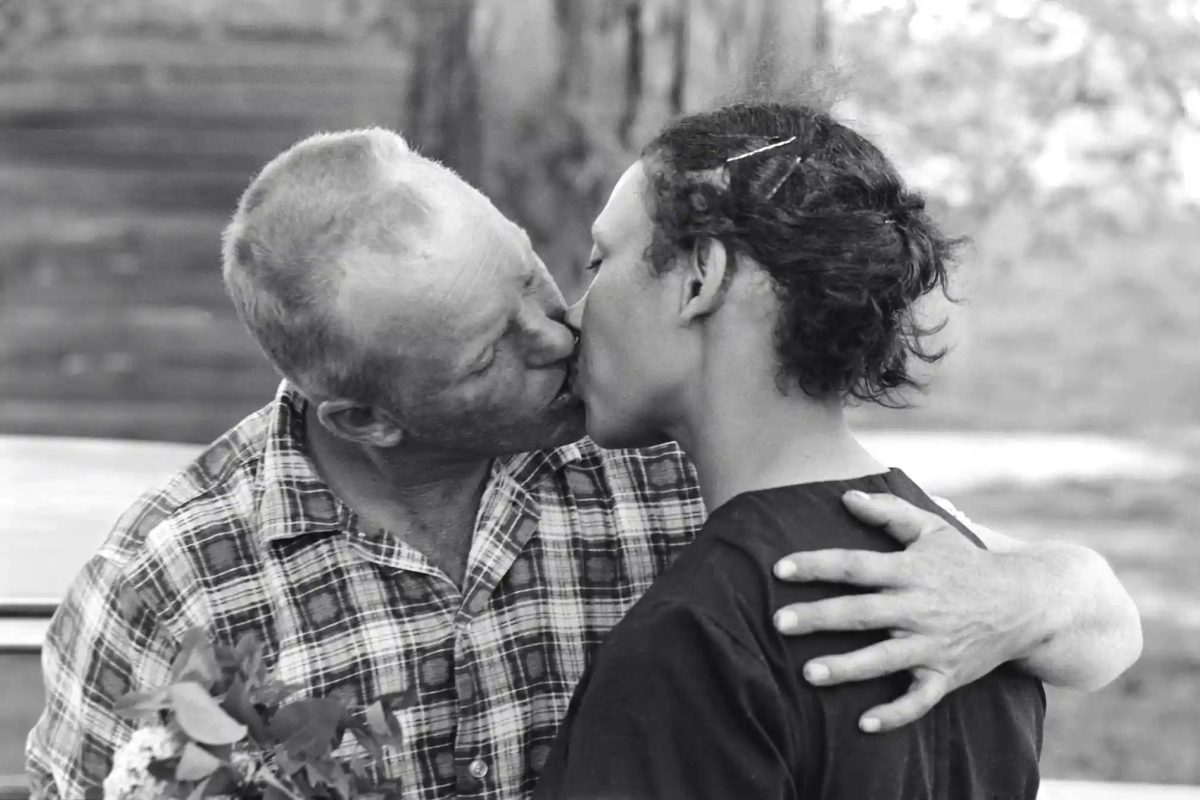
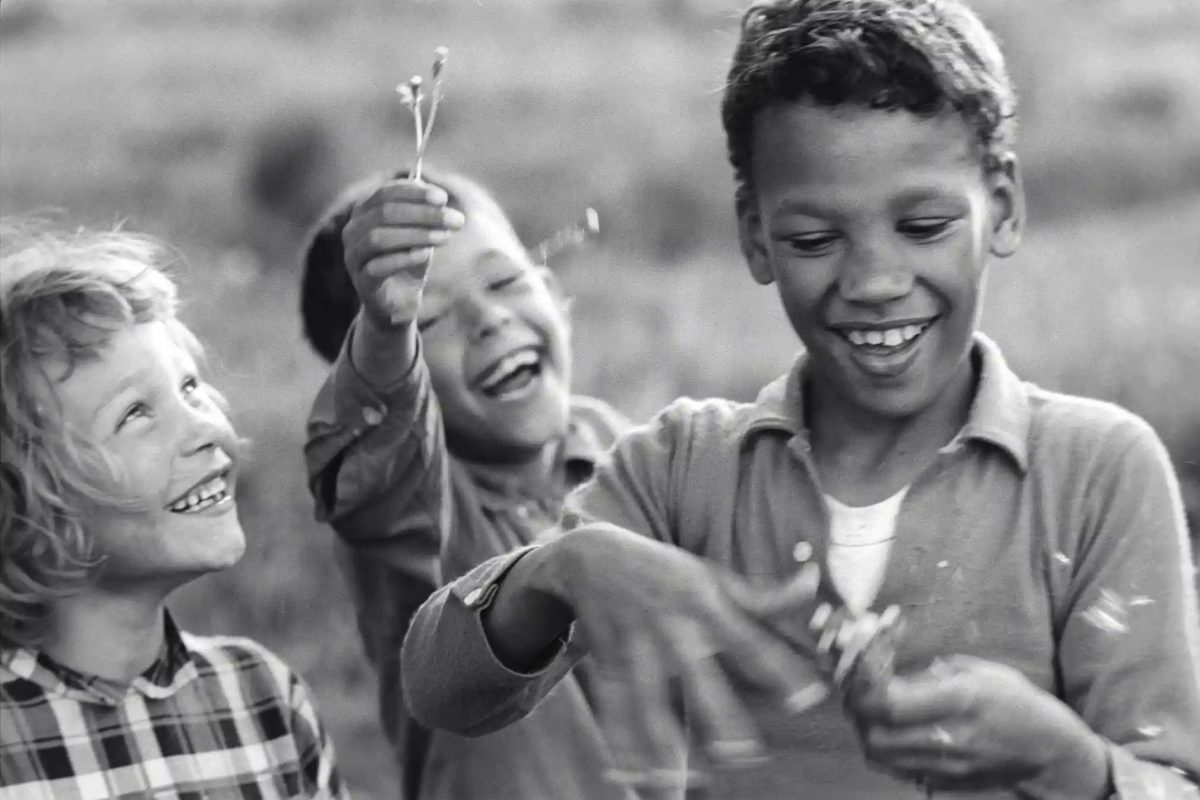
In 1964, Mildred wrote to attorney general Robert F Kennedy, who referred her to the American Civil Liberties Union (ACLU). The ACLU assigned volunteer Jewish attorneys Bernard S Cohen (January 17, 1934 – October 12, 2020) and Philip J Hirschkop (born May 14, 1936) to the case.
In court, Cohen delivered a message from Richard: “Mr Cohen, tell the court I love my wife, and it is just unfair that I can’t live with her in Virginia.”
The Supreme Court overturned the Lovings’ convictions in a unanimous decision in June 1967, ruling that the ban on interracial marriage was unconstitutional and in violation of the 14th Amendment
Despite the supreme court’s decision, anti-miscegenation laws remained in several states despite the ruling making it unenforceable. Alabama continued to enforce the law until 1970, and in 2000 was the last state to adapt its laws to the supreme court’s decision.
“They were very simple people, who were not interested in winning any civil rights principle. They just were in love with one another and wanted the right to live together as husband and wife in Virginia, without any interference from officialdom. When I told Richard that this case was, in all likelihood, going to go to the Supreme Court of the United States, he became wide-eyed and his jaw dropped.”
– Bernard S. Cohen
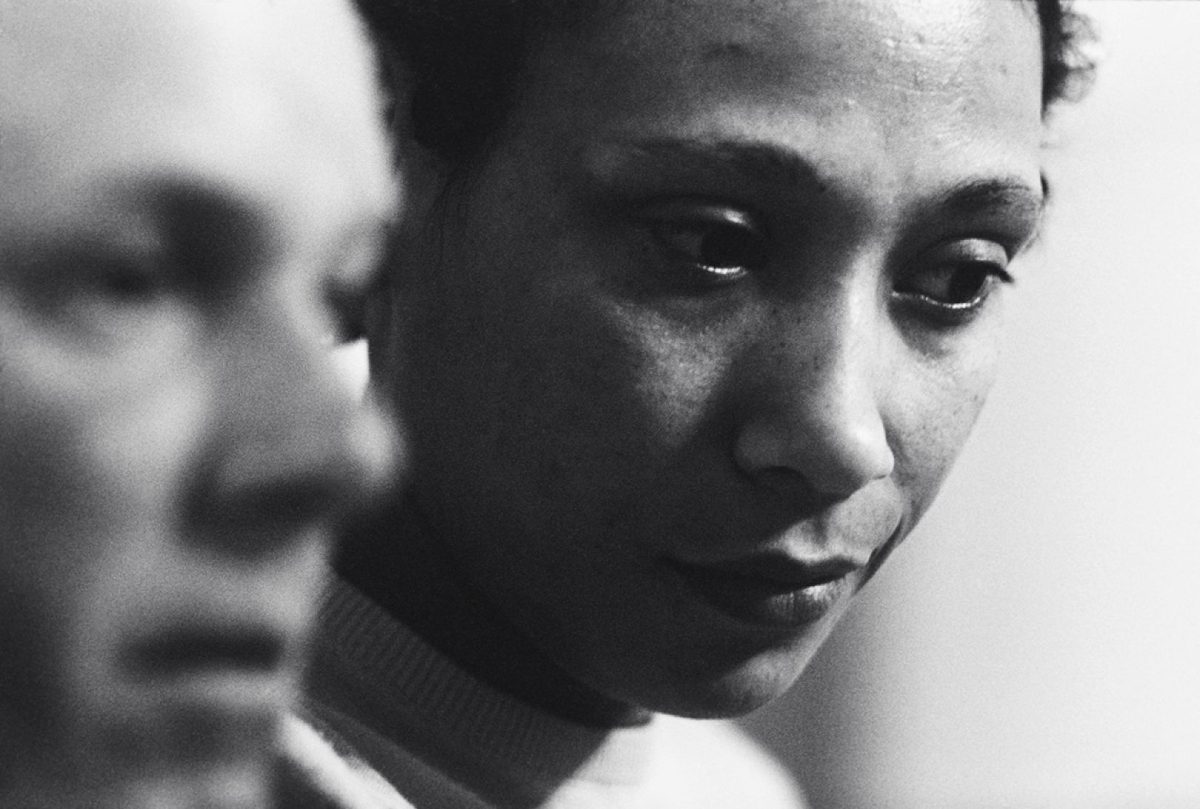
My generation was bitterly divided over something that should have been so clear and right. The majority believed that what the judge said, that it was God’s plan to keep people apart, and that government should discriminate against people in love. But I have lived long enough now to see big changes. The older generation’s fears and prejudices have given way, and today’s young people realize that if someone loves someone they have a right to marry.
Surrounded as I am now by wonderful children and grandchildren, not a day goes by that I don’t think of Richard and our love, our right to marry, and how much it meant to me to have that freedom to marry the person precious to me, even if others thought he was the “wrong kind of person” for me to marry. I believe all Americans, no matter their race, no matter their sex, no matter their sexual orientation, should have that same freedom to marry. Government has no business imposing some people’s religious beliefs over others. Especially if it denies people’s civil rights.
I am still not a political person, but I am proud that Richard’s and my name is on a court case that can help reinforce the love, the commitment, the fairness, and the family that so many people, black or white, young or old, gay or straight seek in life. I support the freedom to marry for all. That’s what Loving, and loving, are all about.
– Mildred Loving, June 12, 2007
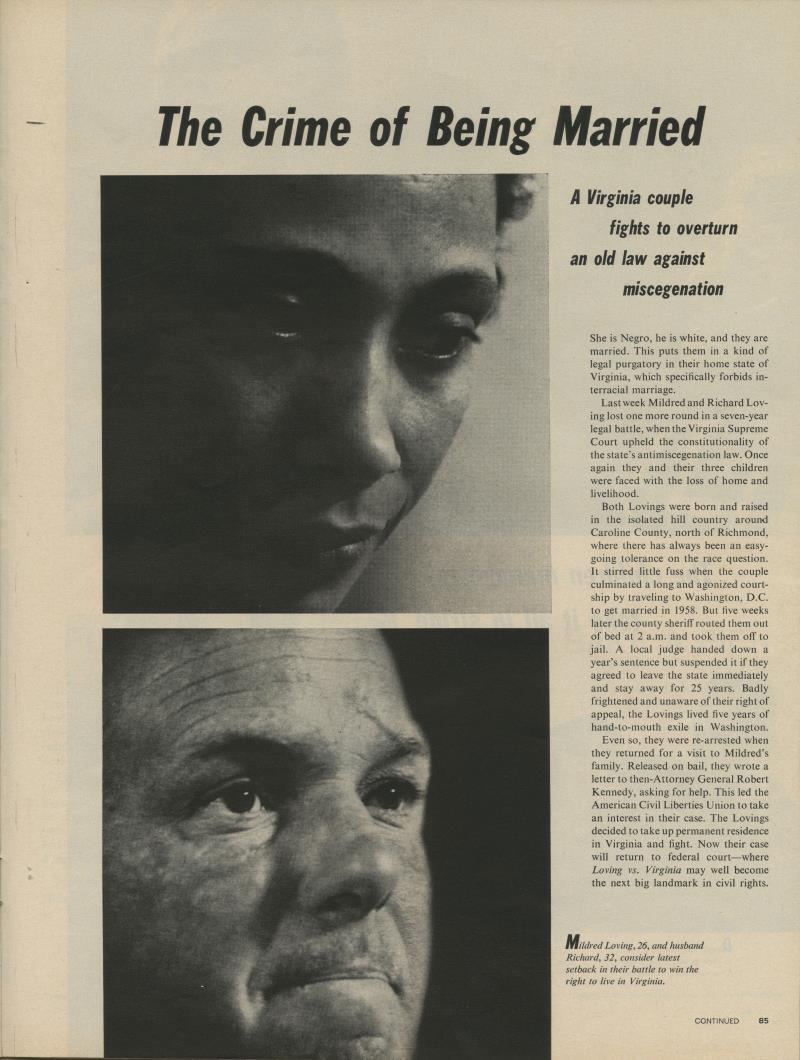
The article published in Life Magazine on March 18, 1966, was written on the Lovings legal situation following the Virginia Supreme Court decision to uphold the 1924 Racial Integrity Act.
The Lovings: An Intimate Portrait by photographer Grey Villet, text by Barbara Villet and foreword by Stephen Crowley
Would you like to support Flashbak?
Please consider making a donation to our site. We don't want to rely on ads to bring you the best of visual culture. You can also support us by signing up to our Mailing List. And you can also follow us on Facebook, Instagram and Twitter. For great art and culture delivered to your door, visit our shop.

